ACT I
Seville. Night. Count Almaviva comes to the house of Doctor Bartolo and serenades Rosina, whom Bartolo keeps confined to the house. Figaro an old friend of Count, who knows all the town’s secrets and scandals, explains to Almaviva that Rosina is Bartolo’s ward, not his daughter, and that the doctor intends to marry her. Figaro devises a plan: the count will disguise himself as a drunken soldier with orders to be quartered at Bartolo’s house so that he may gain access to Rosina. Almaviva is excited and Figaro looks forward to a nice cash pay-off.
Rosina reflects on the voice that has enchanted her and resolves to use her considerable wiles to meet the man it belongs to — as Almaviva has led her to believe, a poor student named Lindoro. Bartolo appears with Rosina’s music master, Don Basilio. Basilio warns Bartolo that Count Almaviva, who has made known his admiration for Rosina, has been seen in Seville. Bartolo decides to marry Rosina immediately. Basilio suggests slander as the most effective means of getting rid of Almaviva. Figaro, who has overheard the plot, warns Rosina and promises to deliver a note from her to Lindoro. Bartolo suspects that Rosina has indeed written a letter, but she outwits him at every turn. Bartolo warns her not to trifle with him.
Almaviva arrives, creating a ruckus in his disguise as a drunken soldier, and secretly passes Rosina his own note. Bartolo is infuriated by the stranger’s behavior and noisily claims that he has an official exemption from billeting soldiers. Figaro announces that a crowd has gathered in the street, curious about the argument they hear coming from inside the house. The civil guard bursts in to arrest Almaviva, but when he secretly reveals his true identity to the captain he is instantly released. Everyone except Figaro is amazed by this turn of events.
ACT II
Bartolo suspects that the “soldier” was a spy planted by Almaviva. The count returns, this time disguised as Don Alonso, a music teacher and student of Don Basilio, to give Rosina her singing lesson in place of Basilio, who, he says, is ill at home. “Don Alonso” then tells Bartolo that when visiting Almaviva at his inn, he found a letter from Rosina. He offers to tell her that it was given to him by another woman, seemingly to prove that Lindoro is toying with Rosina on Almaviva’s behalf. This convinces Bartolo that “Don Alonso” is indeed a student of the scheming Basilio, and he allows him to give Rosina her lesson. With Bartolo dozing off, Almaviva and Rosina declare their love.
Figaro arrives to give Bartolo his shave and manages to snatch the key that opens the doors to Rosina’s balcony. Suddenly Basilio shows up looking perfectly healthy. Almaviva, Rosina, and Figaro convince him with a quick bribe that he is in fact ill and must go home at once. While Bartolo gets his shave, Almaviva plots with Rosina to meet at her balcony that night so that they can elope. But the doctor overhears them and realizing he has been tricked again, flies into a rage. Everyone disperses.
The maid Berta comments on the crazy household. Bartolo summons Basilio, telling him to bring a notary so Bartolo can marry Rosina that very night. Bartolo then shows Rosina her letter to Lindoro, as proof that he is in league with Almaviva. Heartbroken and convinced that she has been deceived, Rosina agrees to marry Bartolo. A thunderstorm passes. Figaro and the count climb a ladder to Rosina’s balcony and let themselves in with the key. Rosina appears and confronts Lindoro, who finally reveals his true identity as Almaviva. Basilio shows up with the notary. Bribed and threatened, he agrees to be a witness to the marriage of Rosina and Almaviva. Bartolo arrives with soldiers, but it is too late. He accepts that he has been beaten, and Figaro, Rosina, and the count celebrate their good fortune.
Place: Seville, Spain
Time: 18th century
Act 1
The square in front of Bartolo's house
In a public square outside Bartolo's house a band of musicians and a poor student named Lindoro are serenading, to no avail, the window of Rosina ("Ecco, ridente in cielo"; "There, laughing in the sky"). Lindoro, who is really the young Count Almaviva in disguise, hopes to make the beautiful Rosina love him for himself – not his money. Almaviva pays off the musicians who then depart, leaving him to brood alone. Rosina is the young ward of the grumpy, elderly Bartolo and she is allowed very little freedom because Bartolo plans to marry her once she is of age and thus appropriate her not inconsiderable dowry.
Figaro approaches singing (Aria: "Largo al factotum della città"; "Make way for the factotum of the city"). Since Figaro used to be a servant of the Count, the Count asks him for assistance in helping him meet Rosina, offering him money should he be successful in arranging this. (Duet: "All'idea di quel metallo"; "At the idea of that metal"). Figaro advises the Count to disguise himself as a drunken soldier, ordered to be billeted with Bartolo, so as to gain entrance to the house. For this suggestion, Figaro is richly rewarded.
A room in Bartolo's house with four doors
The scene begins with Rosina's cavatina, "Una voce poco fa" ("A voice a little while ago"). (This aria was originally written in the key of E major, but it is sometimes transposed a semitone up into F major for coloratura sopranos to perform, giving them the chance to sing extra, almost traditional, cadenzas, sometimes reaching high Ds or even Fs.)
Knowing the Count only as Lindoro, Rosina writes to him. As she is leaving the room, Bartolo and Basilio enter. Bartolo is suspicious of the Count, and Basilio advises that he be put out of the way by creating false rumours about him (this aria, "La calunnia è un venticello" – "Calumny is a little breeze" – is almost always sung a tone lower than the original D major).
When the two have gone, Rosina and Figaro enter. Figaro asks Rosina to write a few encouraging words to Lindoro, which she has actually already written. (Duet: "Dunque io son...tu non m'inganni?"; "Then I'm the one...you're not fooling me?"). Although surprised by Bartolo, Rosina manages to fool him, but he remains suspicious. (Aria: "A un dottor della mia sorte"; "To a doctor of my class").
Count Almaviva, disguised as a soldier and pretending to be drunk, enters the house and demands to be quartered there. In fear of the drunken man, Berta the housekeeper rushes to Bartolo for protection. Bartolo tells the "soldier" that he (Bartolo) has an official exemption which excuses him from the requirement to quarter soldiers in his home. Almaviva pretends to be too drunk and belligerent to understand, and dares Bartolo to brawl. While Bartolo searches his cluttered desk for the official document which would prove his exemption, Almaviva whispers to Rosina that he is Lindoro in disguise, and passes a love-letter to her. Bartolo suspiciously demands to know what is in the piece of paper in Rosina's hands, but she fools him by handing over her laundry list. Bartolo and the Count argue loudly. Basilio enters; then Figaro, who warns that the noise of the argument is rousing the whole neighborhood. Finally, the noise attracts the attention of the Officer of the Watch and his troops, who crowd into the room. Bartolo demands that the Officer arrest the "drunken soldier". The Officer starts to do so, but Almaviva quietly reveals his true identity to the Officer, and he (the Officer) backs off and stands down. Bartolo and Basilio are astonished and mystified; Figaro laughs quietly at them. (Finale: "Fredda ed immobile, come una statua"; "Cold and still, just like a statue"). The confusion intensifies and causes everyone to suffer headaches and auditory hallucinations ("Mi par d'esser con la testa in un'orrida fucina; dell'incudini sonore l'importuno strepitar."; "My head seems to be in a fiery forge: the sound of the anvils deafens the ear.")
Act 2
A room in Bartolo's house with a piano
Almaviva again appears at the doctor's house, this time disguised as a priest who is also a singing tutor and pretending to act as substitute for the supposedly ailing Basilio, Rosina's regular singing teacher. Initially, Bartolo is suspicious, but does allow Almaviva to enter when the Count gives him Rosina's letter. He describes his plan to discredit Lindoro whom he believes to be one of the Count's servants, intent on pursuing women for his master. While Almaviva pretends to give Rosina her singing lesson, Figaro arrives to shave Bartolo. Bartolo demurs, but Figaro makes such a scene he agrees, but in order not to leave the supposed music master alone with Rosina, the doctor has Figaro shave him right there in the music room. When Basilio suddenly appears, he is bribed by a full purse from Almaviva and persuaded to leave again, with much discussion of how ill he looks. (Quintet: "Don Basilio! – Cosa veggo!"; "Don Basilio! – What do I see?"). Figaro begins to shave Bartolo, but Bartolo overhears the lovers conspiring, and angrily drives everybody away.
The scene returns to the location of act 1 with a grill looking out onto the square. Bartolo orders Basilio to have the notary ready to marry him to Rosina that evening. He also explains his plot to come between the lovers. Basilio leaves and Rosina arrives. Bartolo shows Rosina the letter she wrote to "Lindoro", and persuades her that this is evidence that Lindoro is merely a flunky of Almaviva and is toying with her at Almaviva's behest. Rosina believes him and agrees to marry him.
During an instrumental interlude, the music creates a thunder storm to indicate the passage of time. The Count and Figaro climb up a ladder to the balcony and enter the room through a window. Rosina shows Almaviva the letter and accuses him of betraying her. Almaviva reveals his identity and the two reconcile. While Almaviva and Rosina are enraptured by one another, Figaro keeps urging them to leave. Two people are heard approaching the front door, who later turn out to be Basilio and the notary. However, when the Count, Rosina, and Figaro attempt to leave by way of the ladder, they discover it has been removed. The marriage contract requires two witnesses; Figaro is one, but another is needed. The Count makes Basilio an offer he can't refuse: the choice of accepting a bribe and being a witness to his marriage or receiving two bullets in the head (an easy choice, Basilio says). He and Figaro witness the signatures to a marriage contract between the Count and Rosina. Bartolo barges in, accompanied by the Officer and the men of the watch, but too late; the marriage is already complete. The befuddled Bartolo (who was the one who had removed the ladder) is pacified by being allowed to retain Rosina's dowry. The opera concludes with an anthem to love ("Amor e fede eterna, si vegga in noi regnar!").


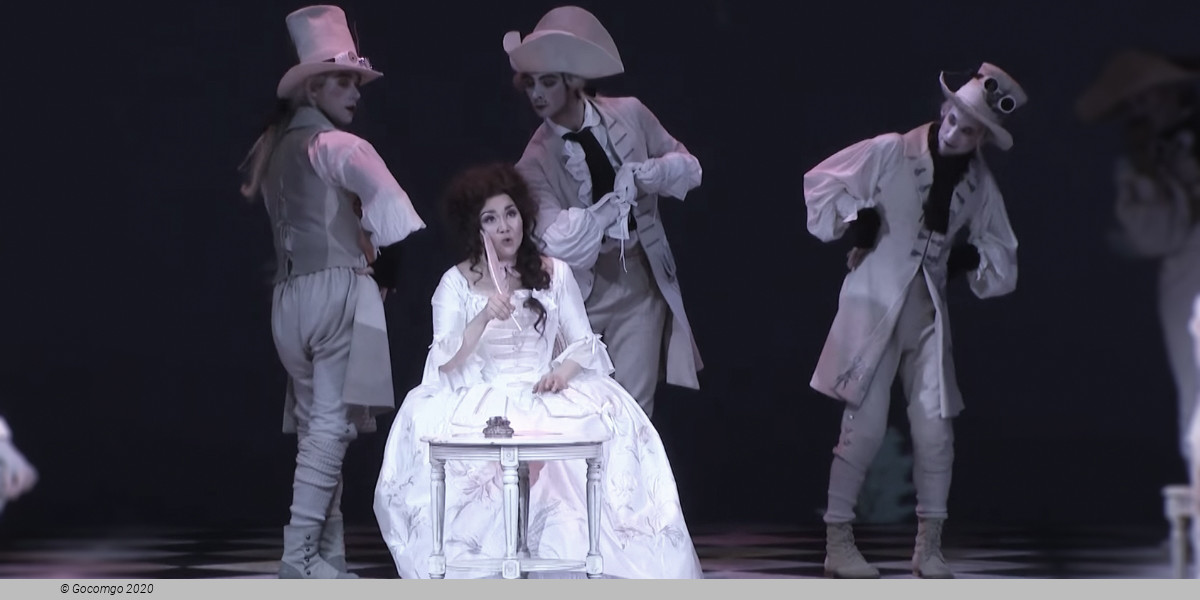
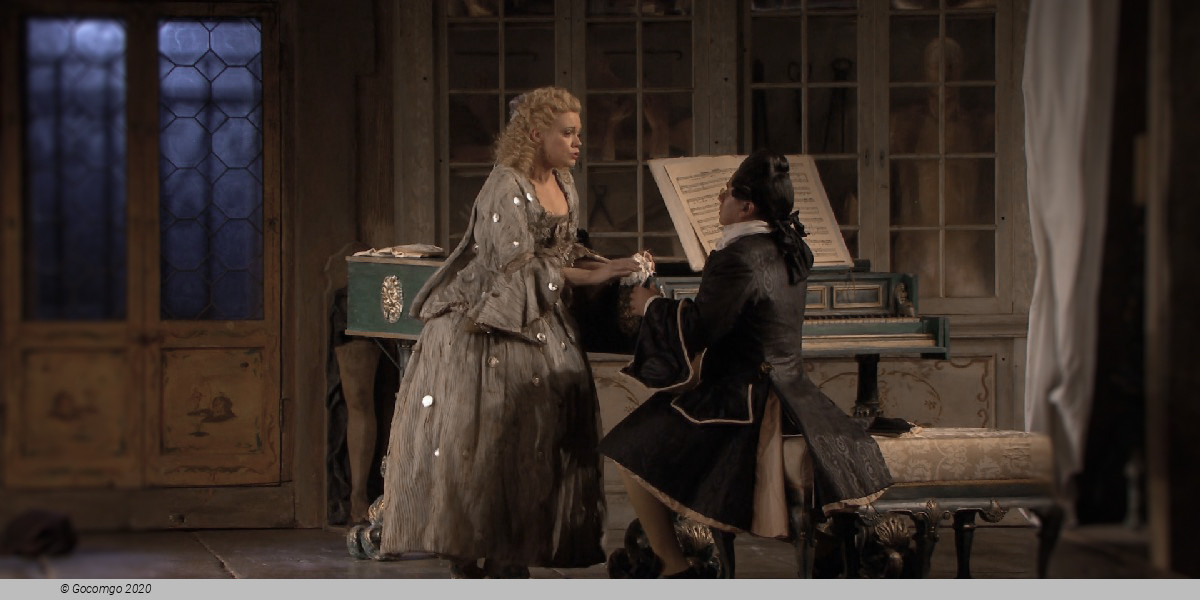
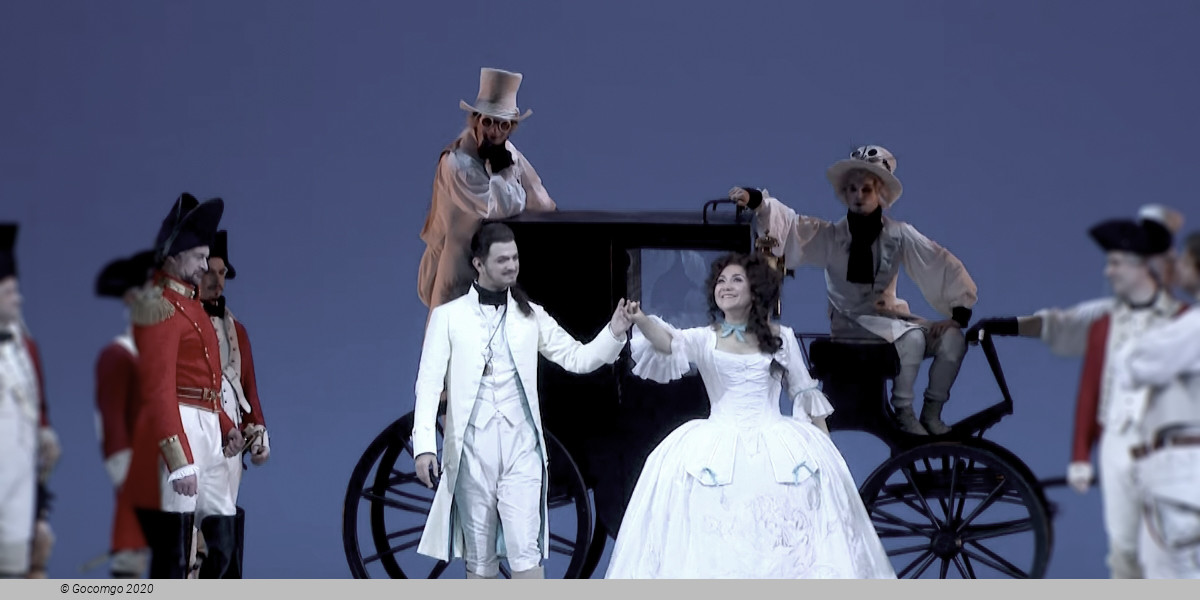
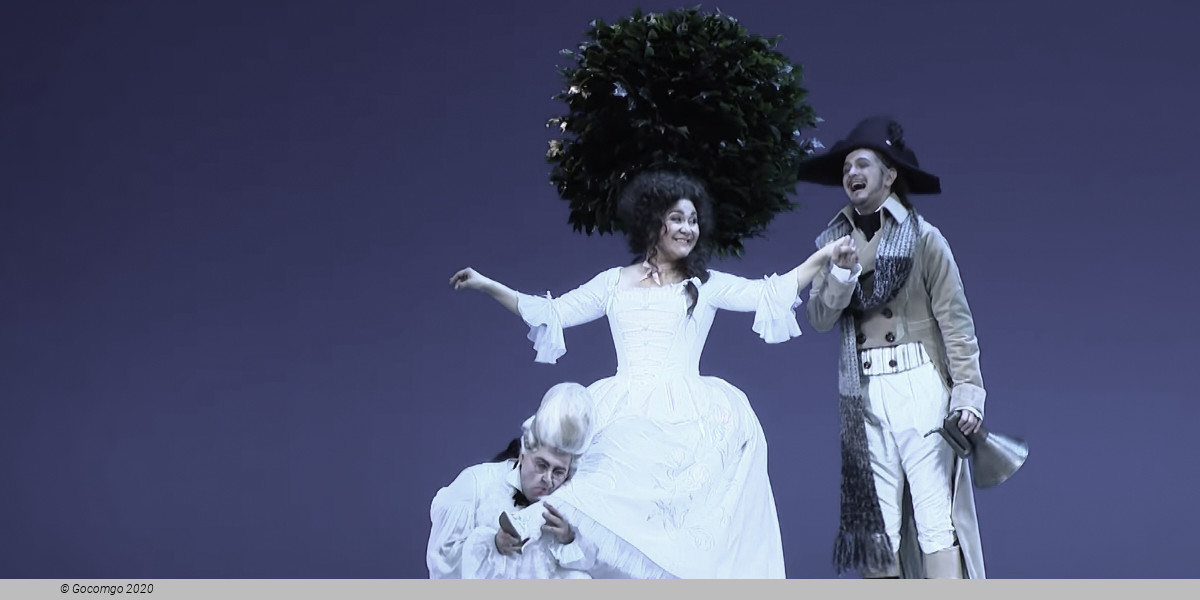
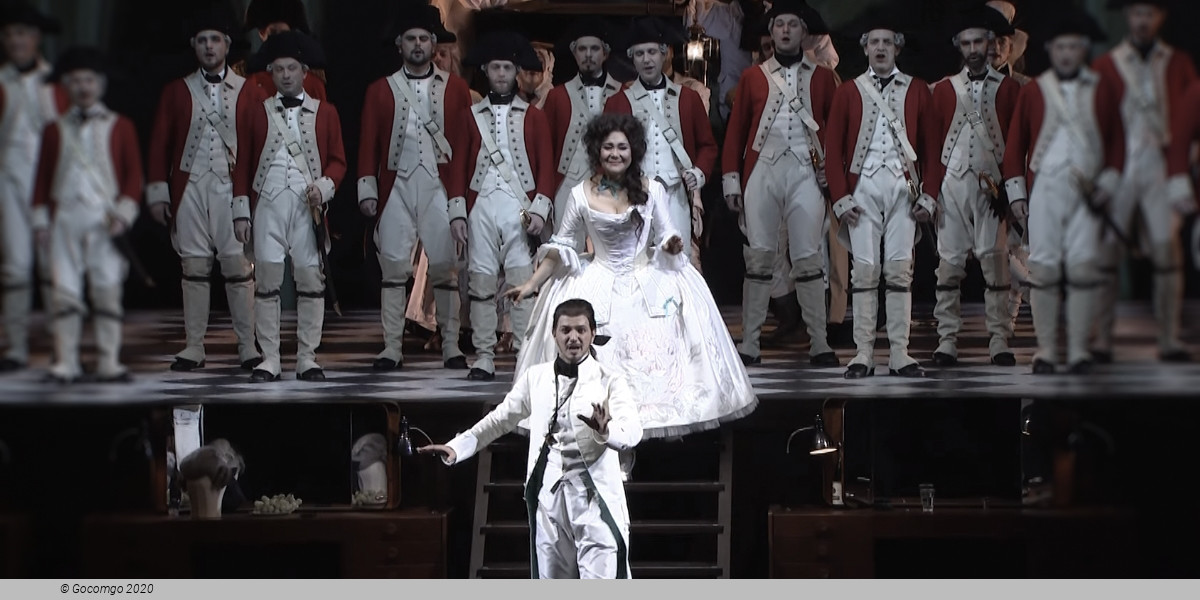
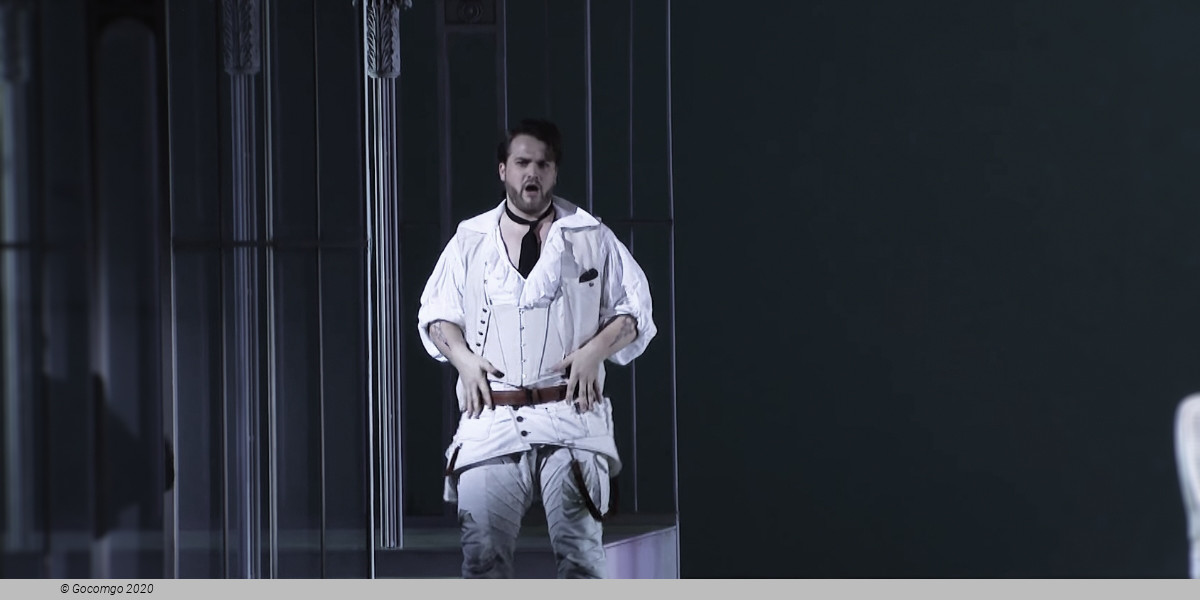
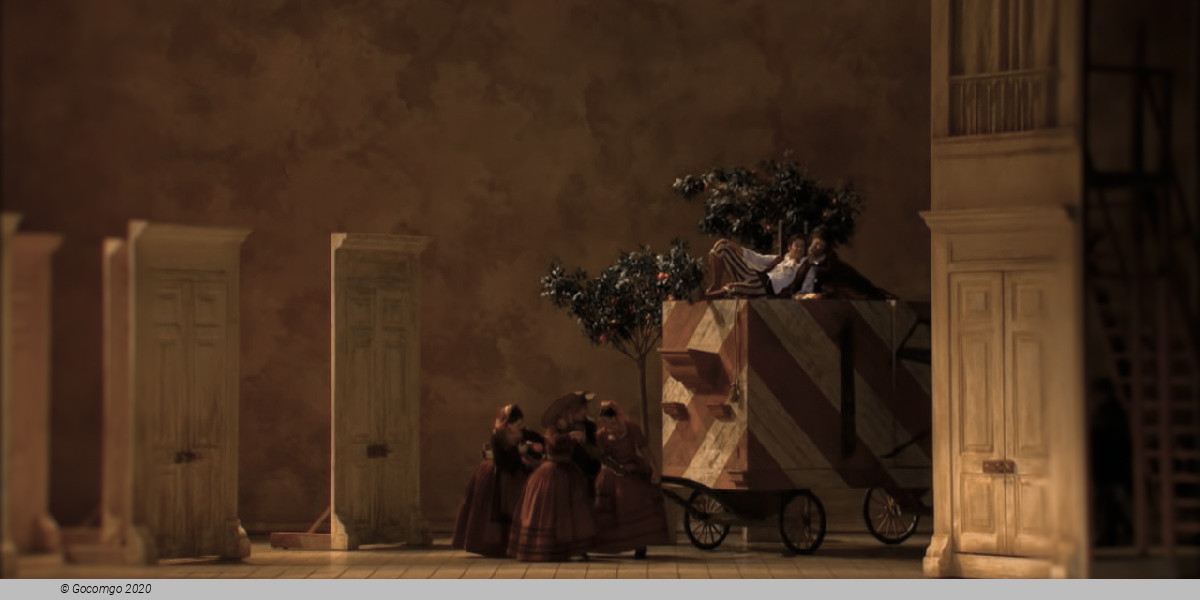
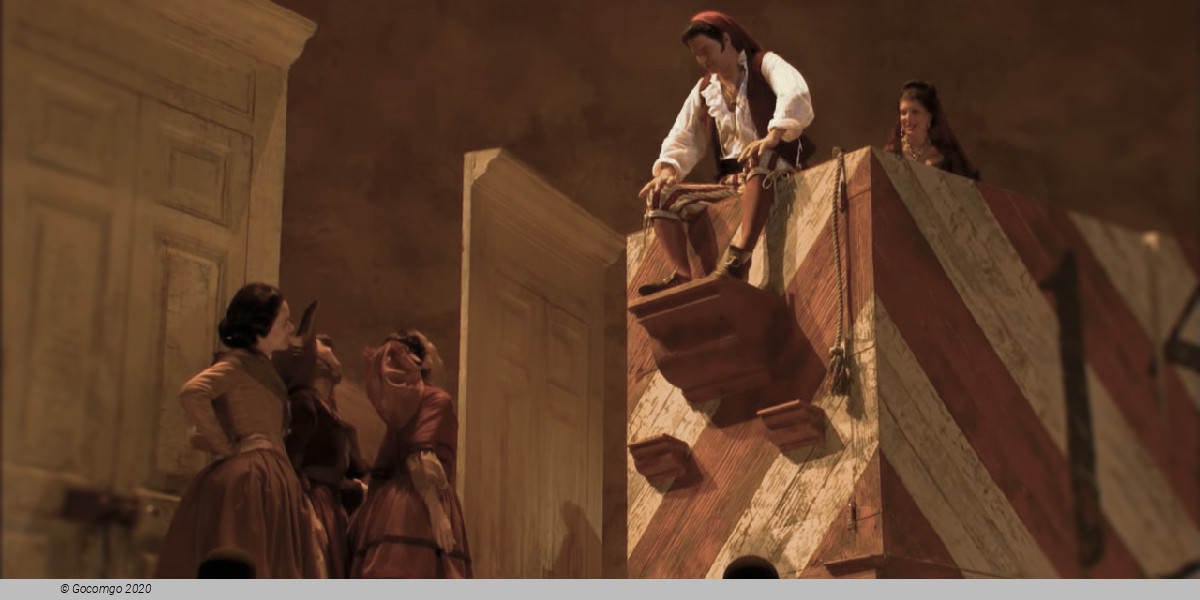
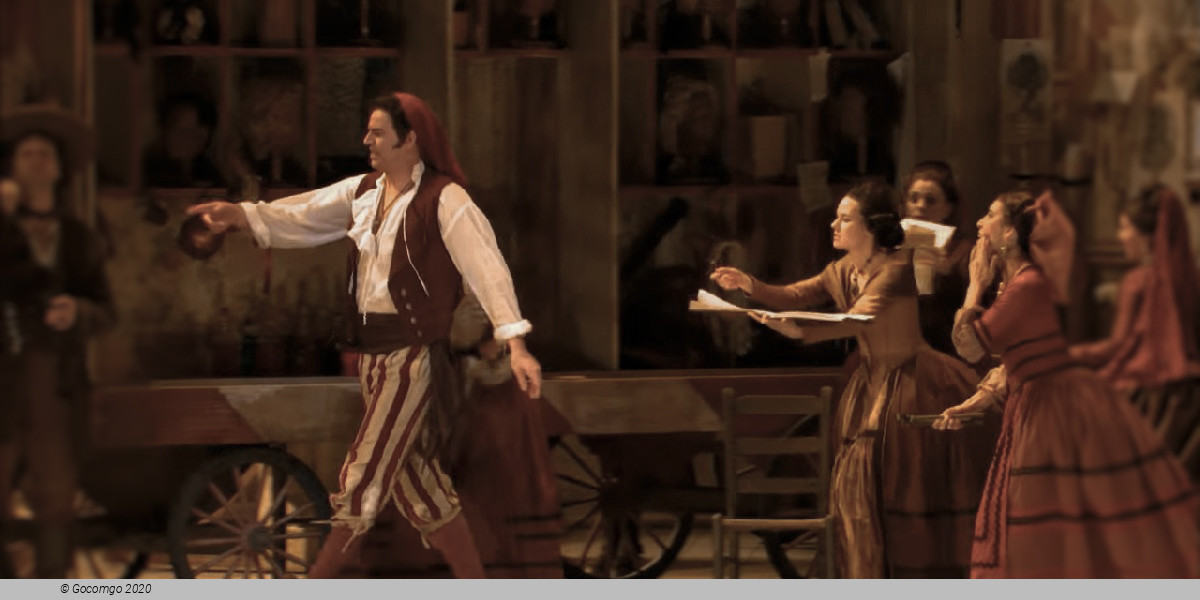
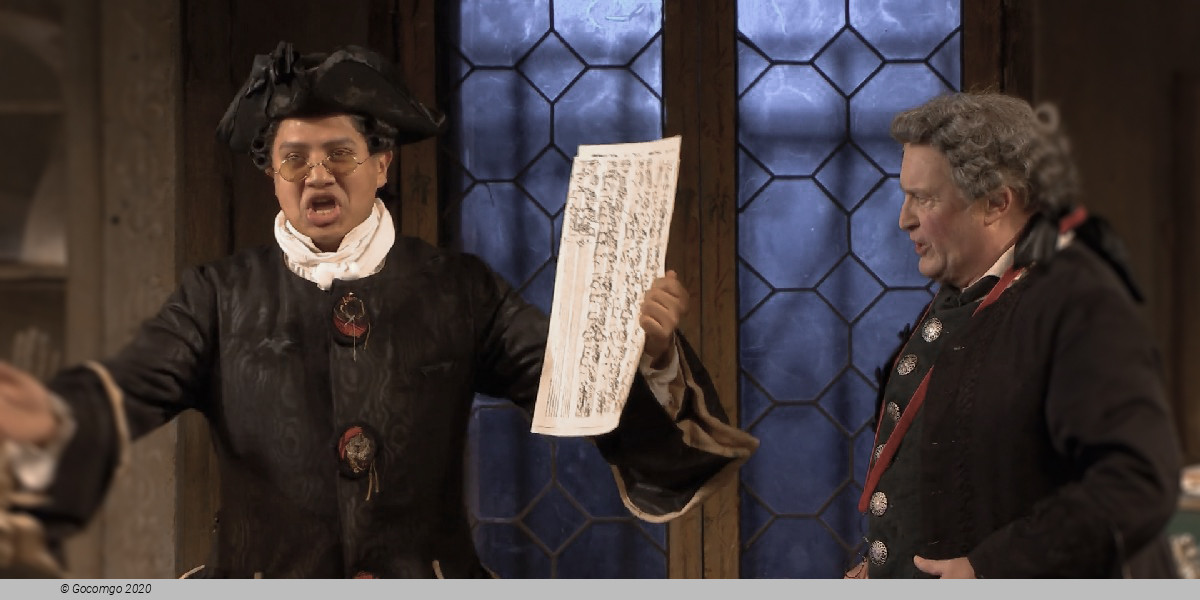
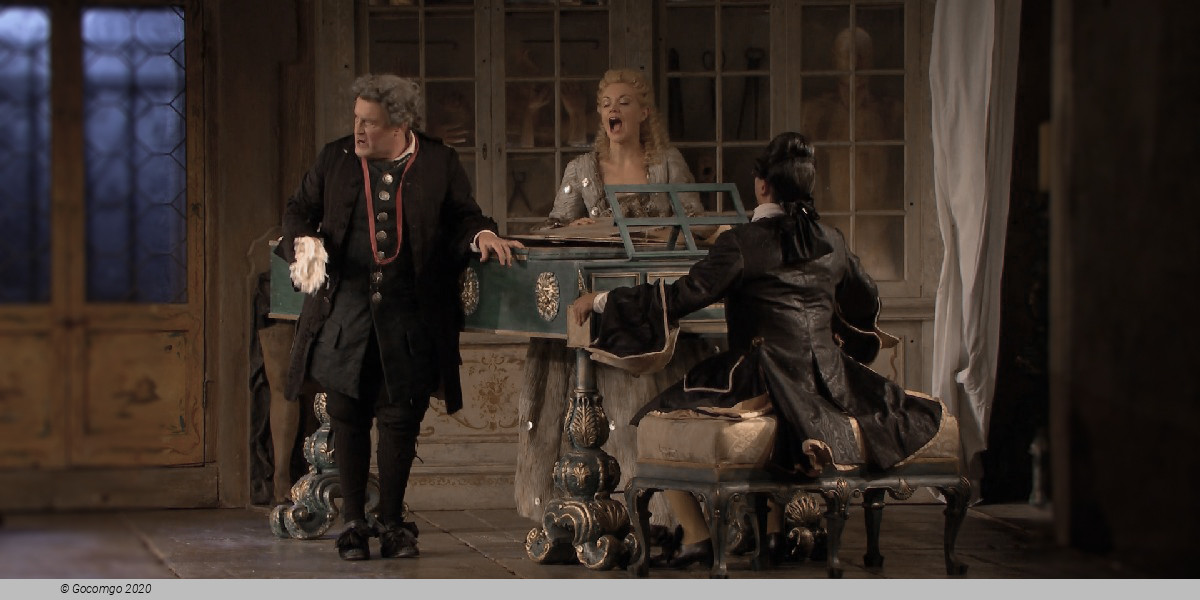
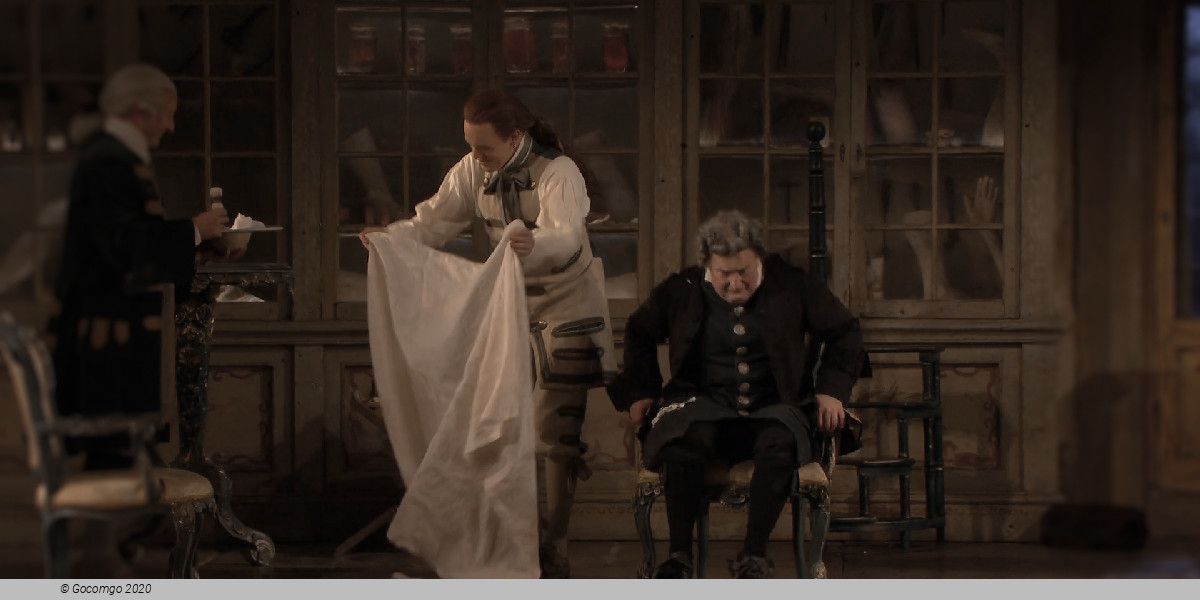
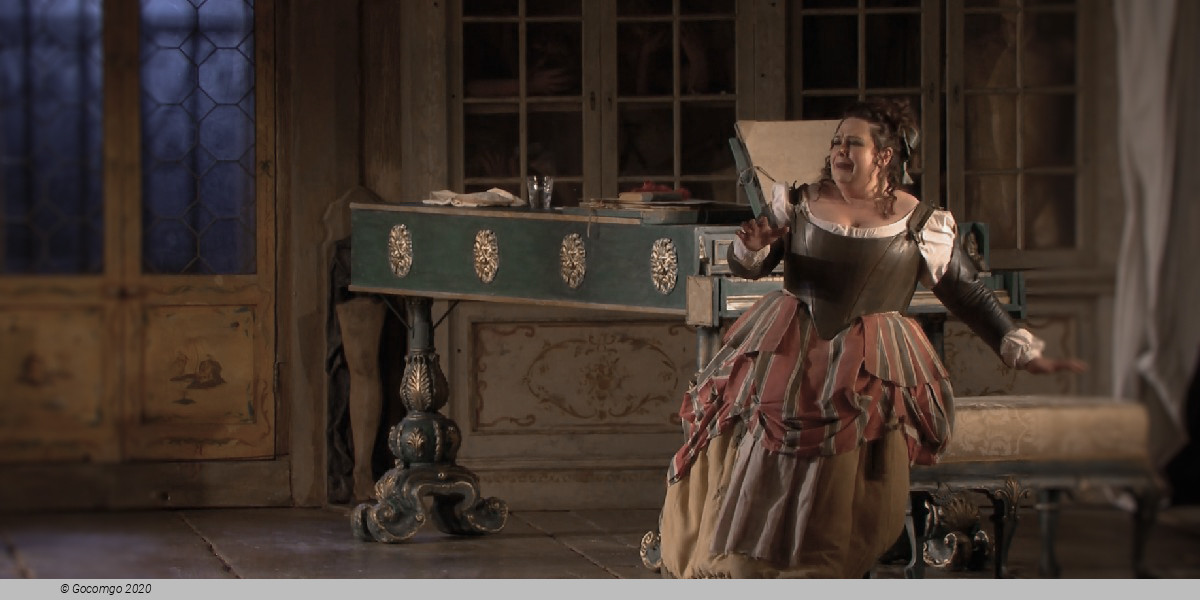
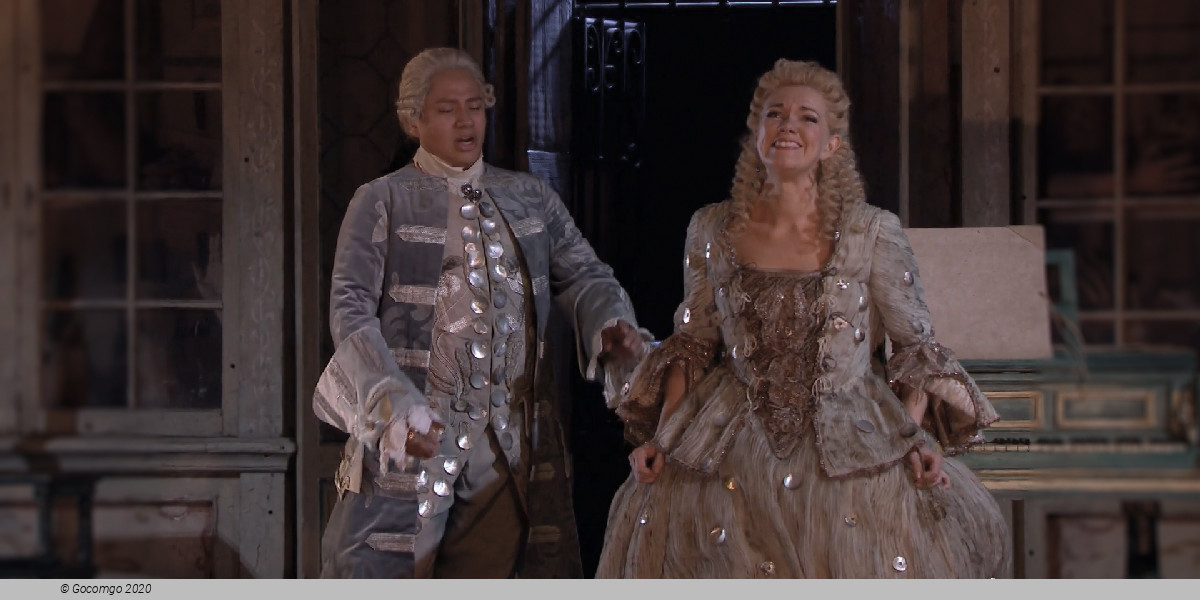
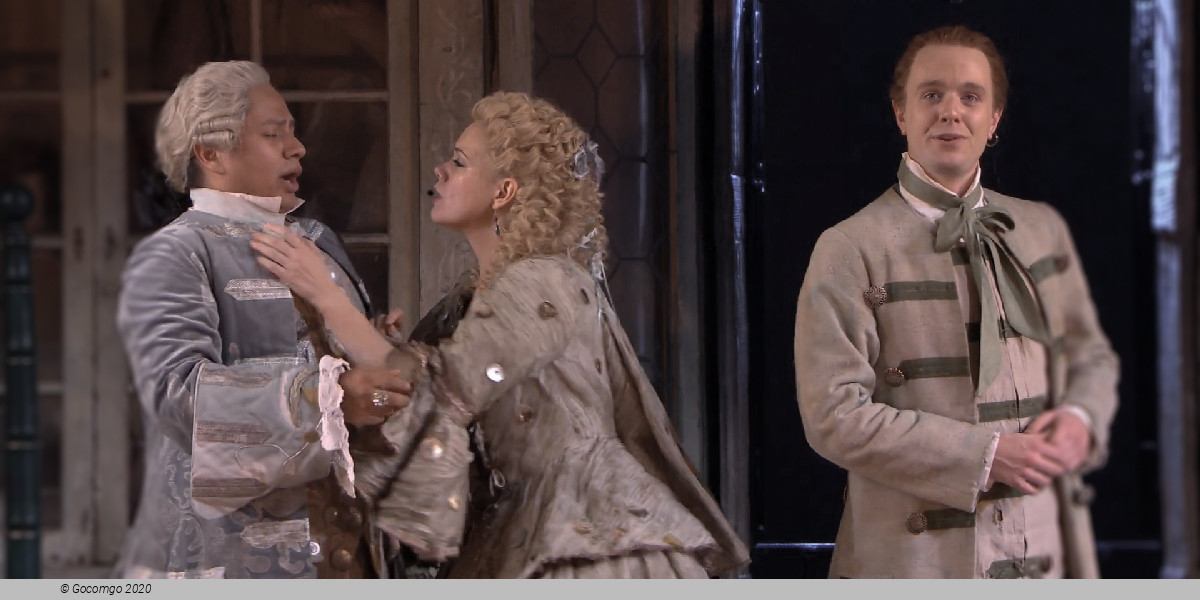
 Teatralnaya Square 1
Teatralnaya Square 1